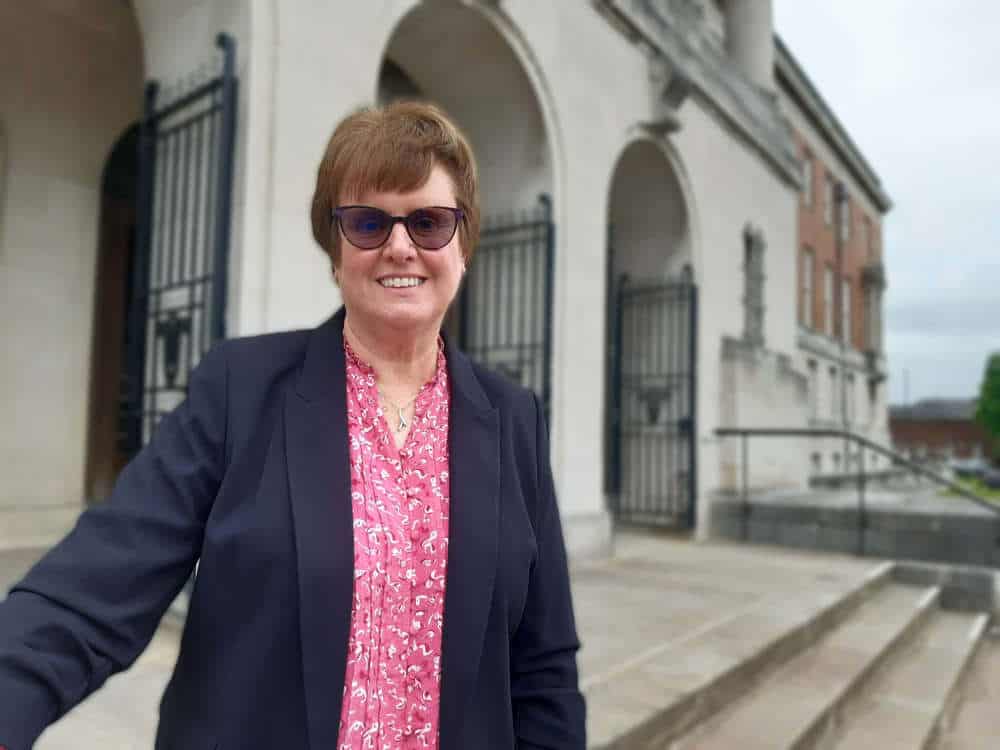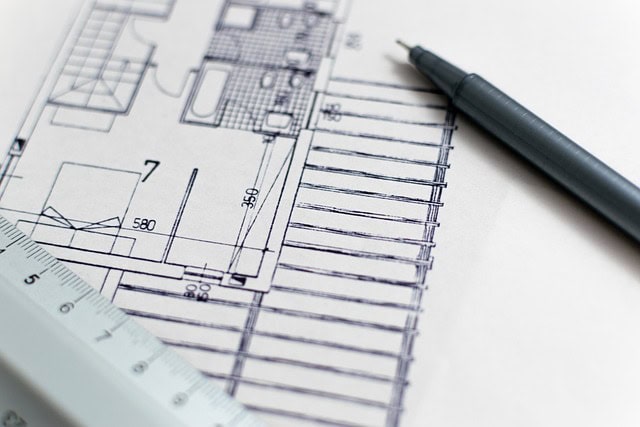-
 play_arrow
play_arrow
Erewash Sound Love Music - Love Erewash
-
 play_arrow
play_arrow
Free essential digital skills course starts in February - Olujuwon Omotoba Erewash Sound
‘One Derbyshire, Two Councils’: Proposals to bring £167m in savings in the first six years
today27 October 2025 5

Derbyshire’s city, district and borough councils are set to seal their proposals for the county to be overseen by just two new north and south councils which they claim could see savings of £167m in the first six years as part of the Government’s Local Government Reorganisation plans.
The Labour Government’s Local Government Reorganisation White Paper plans include setting up single, unitary authorities across England with an elected mayor in counties by merging or scrapping county, district and borough councils in two-tier authority areas like Derbyshire.
But Derbyshire’s eight district and borough councils, and Derby City Council have jointly proposed implementing an alternative with two new separate north and south councils for the county which has been echoed by Derbyshire County Council’s own separate similar proposal with all the details to be formally considered by each local authority at meetings before a November 28th deadline.
A spokesperson for Derbyshire’s city, district, borough councils said: “We have a once-in-a-generation opportunity to significantly transform how we deliver the services that local people rely on – creating a brighter future for all who live, work, and invest in Derbyshire.
“The people and places of our historic county are at the heart of our proposal, and our shared vision will see a future where services are simpler, communities feel supported, and every part of our county thrives.
“We will unify Derbyshire’s current patchwork of policy, planning, and funding – paving the way for joined-up decision-making and localised support to better serve local needs.”
The eight district and borough councils, together with Derby City Council, are proposing to reduce the number of local authorities covering Derbyshire from 10 to two and Derbyshire County Council is also separately supporting similar proposals for two new north and south councils.
Despite Derbyshire County Council developing its own proposal to be submitted to the Government separately, all ten councils have worked together to share information and ensure that data is included to support the submission of their proposals to Government.
The final form either of their similar proposals may take is soon to be formally finalised and agreed before they are presented to the Government as options for consideration before the November 28th deadline.
The city, districts and borough councils’ ‘One Derbyshire, Two Councils’ proposal has been shaped by local and national evidence, according to the councils, along with the results of a public consultation which attracted input from more than 7,300 people, businesses, public bodies and community organisations. Derbyshire County Council also held its own public consultation based on its proposals during the summer.
The ‘One Derbyshire, Two Councils’ proposal includes four variations on where the boundary line between the northern and southern authorities could be with Amber Valley joining either the north or the south and identifying in two of the variations where the parishes currently covered by Amber Valley Borough Council could sit between the two councils.
Under the district, borough and city’s proposals, the councils for northern Derbyshire and southern Derbyshire would deliver all services in their areas, with the city becoming part of the council for southern Derbyshire.
The city, district and borough councils’ claim that financial analysis within the final proposal forecasts cumulative savings of £167m in the first six years, and an annual saving of £44m from year six onwards – which is equivalent to 3per cent of the total budget of all current Derbyshire councils.
They also claim that based on this forecast, the initial investment associated with setting up the two new councils would be recouped within roughly three-and-a-half years after their launch.
The city, borough and district councils have also argued that one unitary authority for Derbyshire will not work because of the size of the county but a system with a north council and a south council will maintain the historic areas of the county and provide better opportunities to work in partnerships especially with the East Midlands Combined County Authority.
They have also argued one, single unitary authority would create an inefficient delivery of services, would stifle economic and housing growth and create a disparity between Derbyshire and Derby in terms of population and tax base.
The city, borough and district council leaders claim two new unitary councils will keep the councils connected to local residents and their needs, provide effective and value for money services, preserve local identity and protect Derbyshire’s historic boundaries and meet the Government’s criteria for reorganisation.
They also argue the two new unitary councils will provide high quality and sustainable public services, work together to understand and meet local needs, create opportunities for stronger community engagement and neighbourhood empowerment, improve efficiency, capacity and financial resilience and support devolution.
Derbyshire’s city, district, and borough councils spokesperson added: “As well as better meeting the needs of our diverse communities, by working with our regional partners, including the Mayor of the East Midlands and East Midlands Combined County Authority, the new councils will also be well positioned to attract significant investment in housing, transport, and infrastructure to strengthen Derbyshire’s economy, and provide more opportunities for local people.
“This is a hugely complex issue with a lot to consider. But – above all – we want every Derbyshire resident to share a sense of belonging and opportunity in a vibrant, prosperous county.
“The final proposal must now be formally considered by all nine of the partner councils, before a submission is made to the Government.”
The Government has argued LGR plans will include elected mayors with more powers on planning and transport, and that the changes will create savings, create greater efficiency, improve public services, and support economic growth.
But critics are concerned about the loss of district and borough councils, a risk of greater Government control, the removal of local decision-making, tax increases, powers being taken away from communities and some also doubt the plans will create savings.
Chesterfield Borough Council Leader, Cllr Tricia Gilby, of the Labour-led authority, has said the districts and boroughs have considered many different possible models and feel their initial proposal provides the best option for Derbyshire and Derby, and that Chesterfield will be represented the same way as any other area.
Cllr Gilby argued devolution can be a good thing highlighting how the new East Midlands Combined County Authority has already seen millions of pounds earmarked for regeneration and economic growth.
Opposition Liberal Democrat Chesterfield Borough Cllr Paul Holmes has opposed the concept of imposing unitary authorities which he dubbed as ‘Hobson’s Choice’ with no democratic mandate with the ‘obliteration’ of up to 200 councils while saying it does not represent the best interests of Chesterfield residents.
He has also questioned whether a new unitary authority will bring savings after he cited a House of Commons Library Research paper which he says could find no such convincing evidence of savings and he added that a 2015 Cardiff University Business School research paper could also find no such evidence.
Cllr Holmes is also concerned that the first few years of any LGR could cost as much as £25m to £40m which is expected to be paid for by cash-strapped councils with no Government support.
He also suggested that if the Government really wants unitary authorities they should be smaller or see the county split into three areas because larger-sized councils such as Birmingham City, Nottingham City and Bradford City have faced financial crises.
Reform UK-controlled Derbyshire County Council Leader Alan Graves told a Full Council meeting that it was important to be able to engage in the process and the county council’s latest proposal would allow the council to influence on-going decision-making with the Government.
But some opposition county councillors, including Conservative Cllrs Nigel Gourlay and Steve Bull, have raised concerns that the county council’s LGR plans could harm more rural areas like the Derbyshire Dales and towns like Ashbourne that could end up being left behind and banded into the Derby City area.
Other county councillors including Independent Amy Wheelton have claimed LGR will take power away from local people and even Reform UK’s Joseph Turrell has argued the system will take away a lot of local decision-making power but he fears the council’s hands are tied because councils are having to respond to a Government plan.
Green County Cllr Rachael Hatchett has also said that any plans or desire to split the Derbyshire Dales and the Amber Valley is not something reflected by the feelings of those in these two districts.
Derbyshire’s city, district and county council’s joint proposal will be considered by each of the nine councils’ decision-making meetings over the coming weeks before a final submission is made to the Government by the deadline of November 28.
The Government will review all proposals, before making a final decision on how Local Government is best reorganised in Derbyshire in the summer of 2026.
Under the Government’s current timetable, elections to the new shadow authorities would take place in 2027, and the new unitary councils would start to operate by April 2028.
Derbyshire’s eight district and borough councils include: Amber Valley Borough Council; Bolsover District Council; Chesterfield Borough Council; Derbyshire Dales District Council; Erewash Borough Council; High Peak Borough Council; North East Derbyshire District Council; and South Derbyshire District Council.

Written by: Erewash Sound
103.5 & 96.8 FM
LOVE MUSIC
LOVE EREWASH
Office: 0115 888 0968
Studio: 0115 930 3450
Erewash Sound, The Media Centre, 37 Vernon Street, Ilkeston, DE7 8PD
© Copyright 2026 Erewash Sound CIC. All Rights Reserved. Company Number 6658171.










